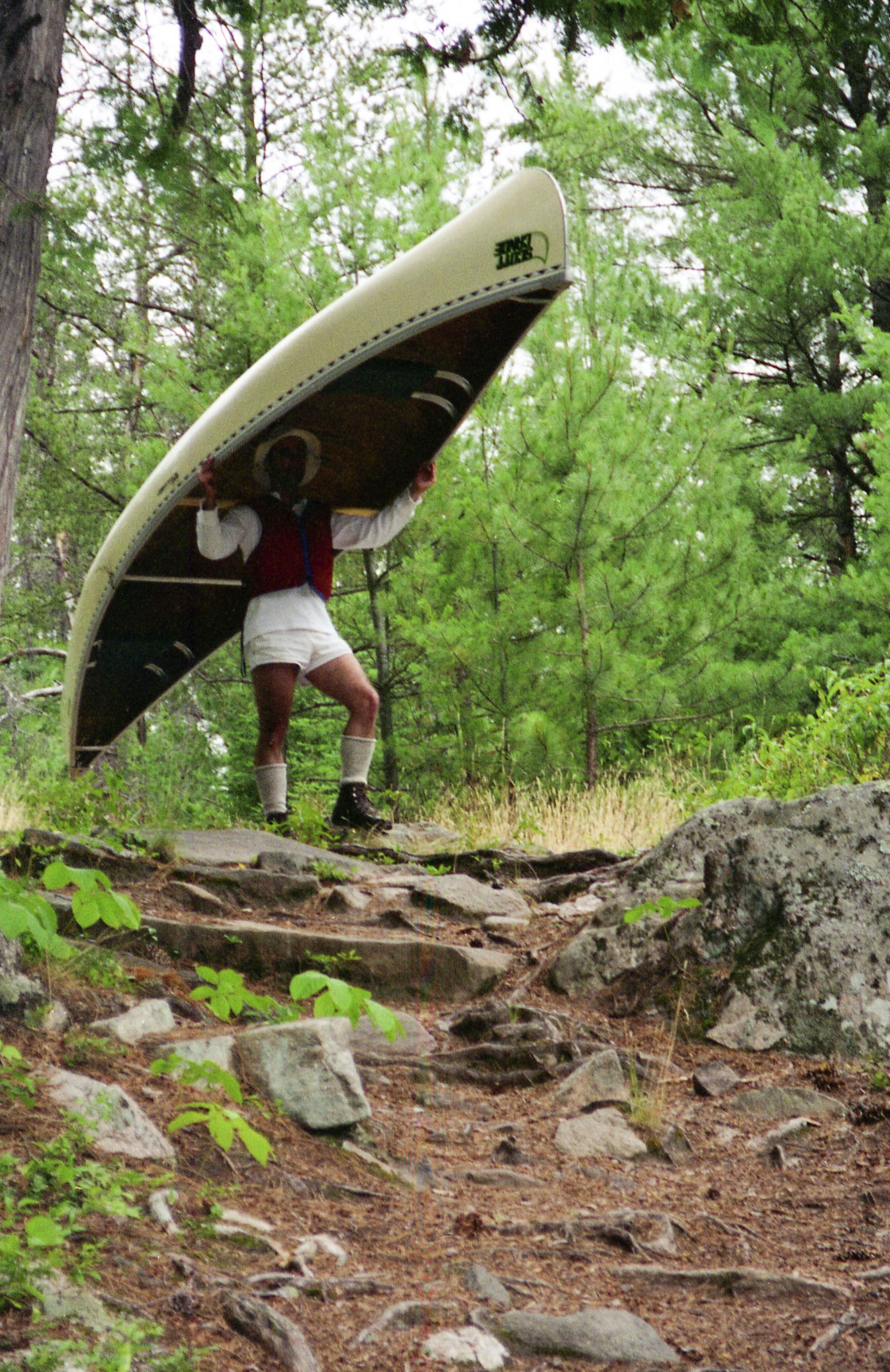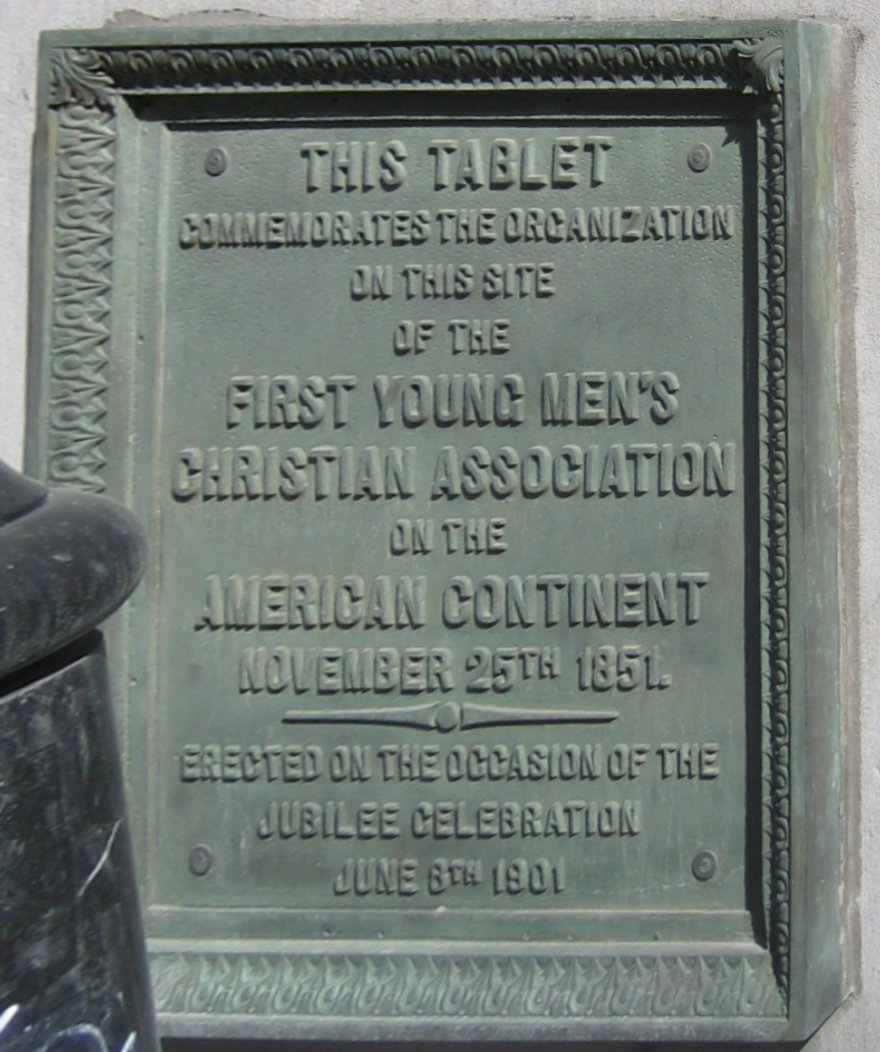|
YMCA Wanakita
YMCA Wanakita is a camp located on Koshlong Lake near Haliburton in central Ontario, Canada. It is run by the YMCA of Hamilton, Burlington and Brantford and attracts campers from throughout Ontario and sometimes internationally. The name "Wanakita" comes from a legend of the Wendat people. Wanakita is most active as a residential summer camp, however it also offers day camping, winter camping and family camping. As of 2012, the camp estimates that it has been home to over 200,000 individuals since it was founded in 1953. History Camp Wanakita was designed as a replacement for Erie Heights on Lake Erie which was itself a replacement for Camp Tekahoinwake on the Grand River. Both of these locations were considered too developed so George Jones and co-workers from the YMCA chose Koshlong Lake as the site for Wanakita in 1953. The name "Wanakita" was chosen by Keith Smith. Wanakita began as an all-boys camp and during its early years, the nurse was the only woman who was regularly ... [...More Info...] [...Related Items...] OR: [Wikipedia] [Google] [Baidu] |
Haliburton County
Haliburton is a county of Ontario, Canada, known as a tourist and cottage area in Central Ontario for its scenery and for its resident artists. Minden Hills is the county seat. Haliburton County and the village of Haliburton are named after Thomas Chandler Haliburton, author, statesman, and the first chairman of the Canadian Land and Emigration Company. The county borders Algonquin Provincial Park on the north. History It was originally organized in 1874 as the Provisional County of Haliburton. The county's economy has historically been based on the lumber industry, with the first sawmill officially opening on December 18, 1864. The Canadian Land and Emigration Company later opened in the 1870s and operated until 1892. A third sawmill was constructed in 1903 by the William Laking Lumber Company. All three of these mills were constructed on the Drag River, an important river in the county in the center of Haliburton Village used to send lumber downstream. The county was creat ... [...More Info...] [...Related Items...] OR: [Wikipedia] [Google] [Baidu] |
Portaging
Portage or portaging (Canada: ; ) is the practice of carrying water craft or cargo over land, either around an obstacle in a river, or between two bodies of water. A path where items are regularly carried between bodies of water is also called a ''portage.'' The term comes from French, where means "to carry," as in "portable". In Canada, the term "carrying-place" was sometimes used. Early French explorers in New France and French Louisiana encountered many rapids and cascades. The Native Americans carried their canoes over land to avoid river obstacles. Over time, important portages were sometimes provided with canals with locks, and even portage railways. Primitive portaging generally involves carrying the vessel and its contents across the portage in multiple trips. Small canoes can be portaged by carrying them inverted over one's shoulders and the center strut may be designed in the style of a yoke to facilitate this. Historically, voyageurs often employed tump lines on th ... [...More Info...] [...Related Items...] OR: [Wikipedia] [Google] [Baidu] |
Ymca Wanakita Dock
YMCA, sometimes regionally called the Y, is a worldwide youth organization based in Geneva, Switzerland, with more than 64 million beneficiaries in 120 countries. It was founded on 6 June 1844 by George Williams in London, originally as the Young Men's Christian Association, and aims to put Christian values into practice by developing a healthy "body, mind, and spirit". From its inception, it grew rapidly and ultimately became a worldwide movement founded on the principles of muscular Christianity. Local YMCAs deliver projects and services focused on youth development through a wide variety of youth activities, including providing athletic facilities, holding classes for a wide variety of skills, promoting Christianity, and humanitarian work. YMCA is a non-governmental federation, with each independent local YMCA affiliated with its national organization. The national organizations, in turn, are part of both an Area Alliance (Europe, Asia Pacific, the Middle East, Afr ... [...More Info...] [...Related Items...] OR: [Wikipedia] [Google] [Baidu] |
When The Saints Go Marching In
"When the Saints Go Marching In", often referred to as simply "The Saints", is a traditional black spiritual. It originated as a Christian hymn and is often played by jazz bands. This song was famously recorded on May 13, 1938, by Louis Armstrong and his orchestra. The song is sometimes confused with a similarly titled composition "When the Saints Are Marching In" from 1896 by Katharine Purvis (lyrics) and James Milton Black (music). Origins and usage The origins of this song are unclear. It apparently evolved in the early 1900s from a number of similarly titled gospel songs, including "When the Saints Are Marching In" (1896) and "When the Saints March In for Crowning" (1908). The first known recorded version was in 1923 by the Paramount Jubilee Singers on Paramount 12073. Although the title given on the label is "When All the Saints Come Marching In", the group sings the modern lyrics beginning with "When the saints go marching in". No author is shown on the label. Several ot ... [...More Info...] [...Related Items...] OR: [Wikipedia] [Google] [Baidu] |
Alouette (song)
"Alouette" () is a popular French-language children's song, commonly thought to be about plucking the feathers from a lark. Although it is in French, it is well known among speakers of other languages; in this respect, it is similar to "Frère Jacques". Many US Marines and other Allied soldiers learned the song while serving in France during World War I and took it home with them, passing it on to their children and grandchildren. History The song's origin is uncertain, but the most popular theory is that it is French-Canadian. It was first published in ''A Pocket Song Book for the Use of Students and Graduates of McGill College'' (Montreal, 1879). Canadian folklorist Marius Barbeau was of the opinion that the song's origin was France France (), officially the French Republic ( ), is a country primarily located in Western Europe. It also comprises of Overseas France, overseas regions and territories in the Americas and the Atlantic Ocean, Atlantic, Pacific Ocean, Pac ... [...More Info...] [...Related Items...] OR: [Wikipedia] [Google] [Baidu] |
Ymca Wanakita Core
YMCA, sometimes regionally called the Y, is a worldwide youth organization based in Geneva, Switzerland, with more than 64 million beneficiaries in 120 countries. It was founded on 6 June 1844 by George Williams in London, originally as the Young Men's Christian Association, and aims to put Christian values into practice by developing a healthy "body, mind, and spirit". From its inception, it grew rapidly and ultimately became a worldwide movement founded on the principles of muscular Christianity. Local YMCAs deliver projects and services focused on youth development through a wide variety of youth activities, including providing athletic facilities, holding classes for a wide variety of skills, promoting Christianity, and humanitarian work. YMCA is a non-governmental federation, with each independent local YMCA affiliated with its national organization. The national organizations, in turn, are part of both an Area Alliance (Europe, Asia Pacific, the Middle East, A ... [...More Info...] [...Related Items...] OR: [Wikipedia] [Google] [Baidu] |
Grace (prayer)
A grace is a short prayer or thankful phrase said before or after eating. The term most commonly refers to Christian traditions. Some traditions hold that grace and thanksgiving imparts a blessing which sanctifies the meal. In English, reciting such a prayer is sometimes referred to as "saying grace". The term comes from the Ecclesiastical Latin phrase ''gratiarum actio'', "act of thanks." Theologically, the act of saying grace is derived from the Bible, in which Jesus and Saint Paul pray before meals (cf. , ). The practice reflects the belief that humans should thank God who is the origin of everything. Christianity Typical Christian grace prayers * Latin Catholic (before eating) – "Bless us, O Lord, for these, Thy gifts, which we are about to receive from Thy bounty. Through Christ, our Lord. Amen." (Preceded and followed by the Sign of the Cross. Also used by some German Lutherans.) * Latin Catholic (after eating) – "We give Thee thanks, Almighty God, for all thy be ... [...More Info...] [...Related Items...] OR: [Wikipedia] [Google] [Baidu] |
Tuck Shop
A tuck shop is a small retailer located either within or close-to the grounds of a school, hospital, apartment complex, or other similar facility. In traditional British usage, tuck shops are associated chiefly with the sale of confectionery, sweets, or snacks and are common at private ('fee-paying') schools. Tuck shops located within a campus are often the only place where monetary transactions may be made by students. As such, they may also sell items of stationery or other related school items. In some regions, the words 'tuck shop' may be interchangeable with a 'canteen'. The term is used in the UK, Ireland, Australia, New Zealand, South Africa, Canada, Nigeria, Pakistan, India, Jamaica, Hong Kong, Botswana, The Bahamas and in other parts of the former British Empire. In Australia, at youth clubs, campsites, and schools, the tuck shop is mainly staffed by volunteers from the community, which may include students, parents and, in the case of clubs, its members. The term is ... [...More Info...] [...Related Items...] OR: [Wikipedia] [Google] [Baidu] |
Ymca Wanakita Campfire
YMCA, sometimes regionally called the Y, is a worldwide youth organization based in Geneva, Switzerland, with more than 64 million beneficiaries in 120 countries. It was founded on 6 June 1844 by George Williams in London, originally as the Young Men's Christian Association, and aims to put Christian values into practice by developing a healthy "body, mind, and spirit". From its inception, it grew rapidly and ultimately became a worldwide movement founded on the principles of muscular Christianity. Local YMCAs deliver projects and services focused on youth development through a wide variety of youth activities, including providing athletic facilities, holding classes for a wide variety of skills, promoting Christianity, and humanitarian work. YMCA is a non-governmental federation, with each independent local YMCA affiliated with its national organization. The national organizations, in turn, are part of both an Area Alliance (Europe, Asia Pacific, the Middle East, A ... [...More Info...] [...Related Items...] OR: [Wikipedia] [Google] [Baidu] |






